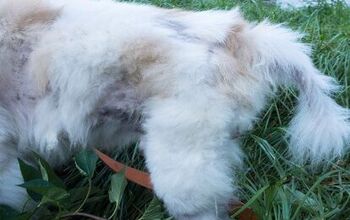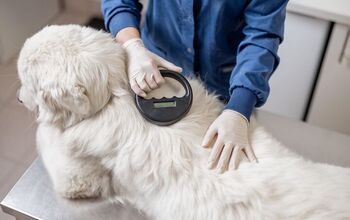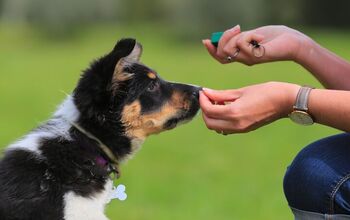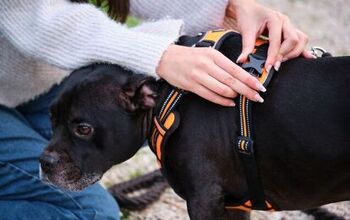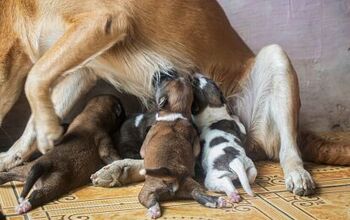The Symptoms, Causes, and Treatments of Pneumonia in Dogs

Although dogs are affected by different pathogens than humans are, they can still get sick with some of the same diseases. Pneumonia, for example, is a respiratory illness that can affect dogs. In fact, there are two different types of pneumonia in dogs – bacterial and aspiration – keep reading to learn more.
What is Pneumonia in Dogs?
The canine respiratory system is divided into two parts – the upper respiratory tract and the lower. The upper respiratory tract consists of the nose, throat, and trachea (or windpipe) while the lower respiratory tract consists of the smaller airways (the bronchi and the bronchioles) as well as the air sacs in the lungs themselves known as alveoli. Pneumonia is a condition in which the lungs or the lower respiratory tract become inflamed. When both the lungs and the airways become inflamed it is called bronchopneumonia.
Related: Kennel Cough Symptoms And Treatments
What is the Difference Between Bacterial and Aspiration Pneumonia?
In most cases of canine pneumonia, the underlying cause is a bacterial infection. There are many different strains of bacteria that can contribute to pneumonia in dogs but the most common are Streptococcus zooepidemicus, Bordetella bronchiseptica, Pasteurella multocida, and Pseudomonas aeruginosa.
You may already be familiar with the bacteria Bordetella bronchiseptica because it is also responsible for “ kennel cough,” a contagious respiratory infection that can be easily spread from one dog to another. When this infection spreads from the trachea and bronchi into the lungs it may develop into bacterial pneumonia. Bacterial pneumonia can be secondary to other health problems as well, such as inhalant allergies or viral infections like parainfluenza and canine adenovirus.
Related: What Pet Parents Need To Know About Reverse Sneezing In Dogs
While bacterial pneumonia is caused by a bacterial infection, aspiration pneumonia is characterized by inflammation caused by the inhalation of some kind of foreign matter – it can also result from aspiration of vomit or regurgitated stomach contents.
Symptoms of aspiration pneumonia include difficulty breathing or swallowing, coughing, fever, nasal discharge, rapid heart rate, and altered mood or appetite. Some of these symptoms overlap with the signs of bacterial pneumonia which include symptoms like cough, fever, loss of appetite, sluggishness, difficulty breathing, and nasal discharge.
How is Pneumonia in Dogs Treated?
The proper treatment for pneumonia in dogs is dependent on the underlying cause. For cases of bacterial pneumonia, multiple strains may be involved so your veterinarian will need to collect samples to identify the various strains. In most cases, bacterial pneumonia in dogs is treated with antibiotics. If your dog is also severely dehydrated or underweight, he may need hospitalization or, at the very least, fluid therapy. Aspiration pneumonia is usually diagnosed through diagnostic tests such as abdominal palpation, chest x-rays, and a complete blood profile. Treatment for aspiration pneumonia usually may require suction of the airway and oxygen treatment. In either case, your dog will also need time to rest and recover.
Pneumonia, in its many forms, has the potential to be a very serious and even life-threatening condition for dogs. Respiratory distress is never something you should ignore – if your dog has trouble breathing, seek emergency veterinary care as soon as possible.

Kate Barrington is the loving owner of two cats (Bagel and Munchkin) and a noisy herd of guinea pigs. Having grown up with golden retrievers, Kate has a great deal of experience with dogs but labels herself a lover of all pets. Having received a Bachelor's degree in English, Kate has combined her love for pets and her passion for writing to create her own freelance writing business, specializing in the pet niche.
More by Kate Barrington






